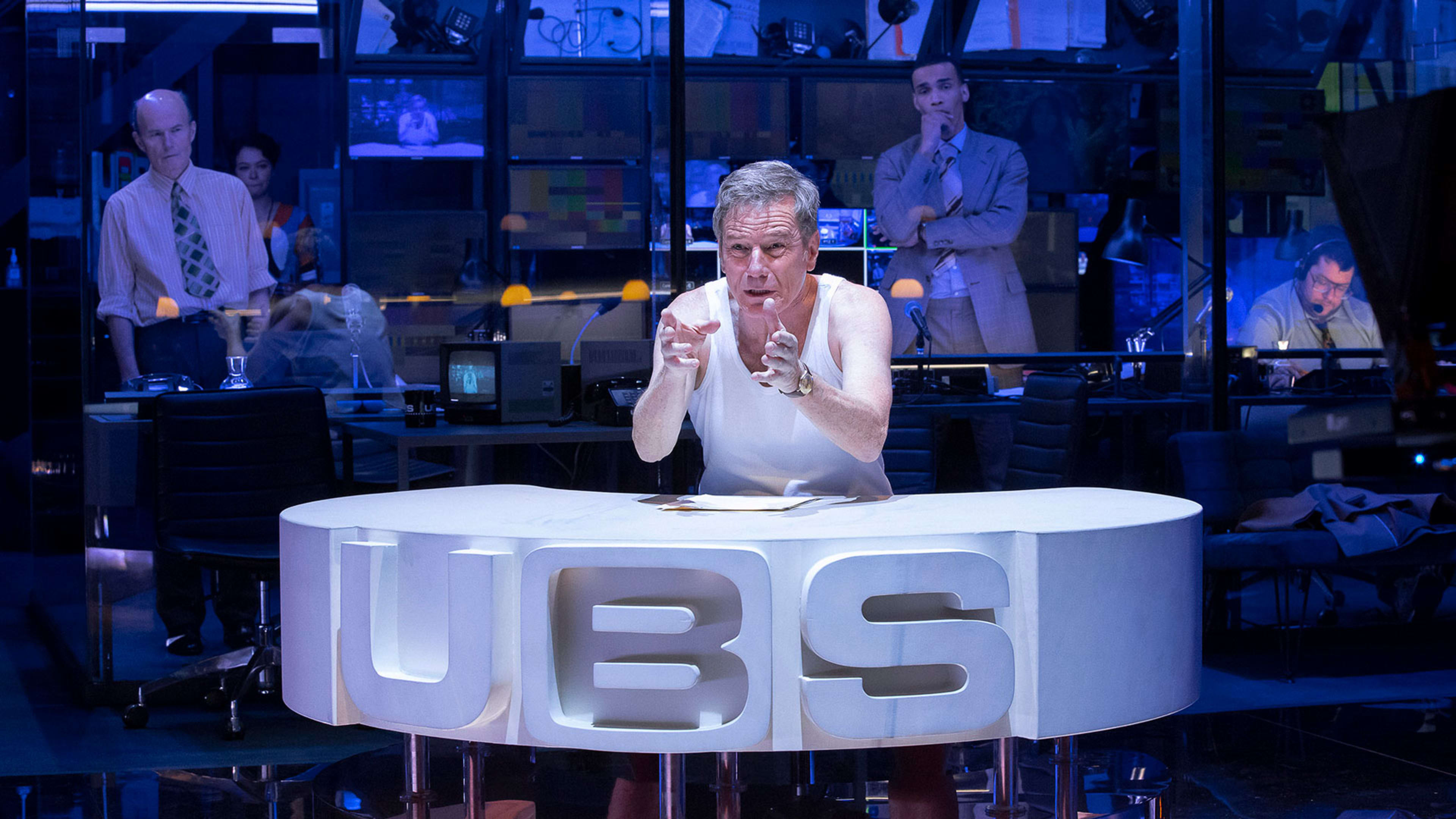It’s hard to say anything new about the prophetic power of the movie Network. Decades before the advent of Fox News, Paddy Chayefsky’s 1976 classic famously foretold the coming age of infotainment, the inevitability of media consolidation, and the lost promise of television as a tool to educate and edify. Most notably, though, it predicted that most curious of beasts—American rage—and how TV audiences would reliably gravitate toward programming that reflects our collective anger.
Even if you haven’t seen the movie, you probably know the famous rant by fictional newscaster Howard Beale, who, in the throes of an on-air breakdown, convinces his millions of viewers to open their windows and scream, “I’m mad as hell, and I’m not going to take this anymore.” Few pieces of movie dialogue have proved so durable over the decades. Even today, we can relate. Especially today.
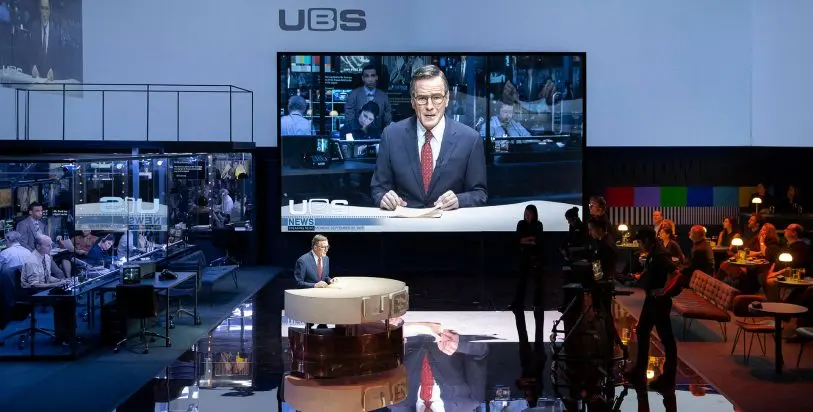
There is a whole and entire generation right now who never knew anything that didn’t come out of this tube. This tube is gospel. This tube is the ultimate revelation. This tube can make or break presidents, popes, and prime ministers. This tube is the most awesome goddamn force in the whole godless world. And woe is us if it ever falls into the hands of the wrong people.
Swap out the words “this tube” for “social media” and it becomes clear. In 2018, Network is best seen as a parable about Facebook. If the last two years of Facebook-related scandals, data breaches, Russian trolls, and gross executive mismanagement have taught us anything, it’s that the implications of Beale’s warning are pretty immediate.
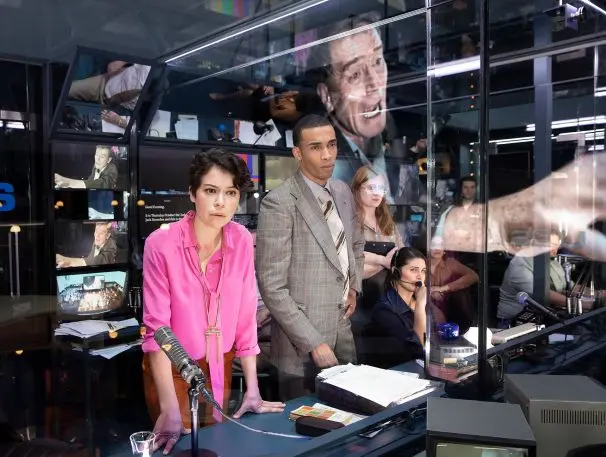
Of course, broadcast TV was the dominant medium in 1976, and the “wrong people” Chayefsky had in mind were the more traditional gray-haired boardroom moguls of that time period, not Silicon Valley brogrammers, Russian troll farms, meme creators, data miners, or what have you. But the story’s larger point about what happens when powerful media networks fall into the hands of a few mega-corporations has never been more pressing than right now, particularly when you consider that the lifeblood of those networks hasn’t changed since the 1970s. Then, like now, advertising ran the show, and when two companies—Facebook and Google—control almost 60% of the market share in the digital advertising space, it’s hard not to see a problem. Chayefsky certainly would have.
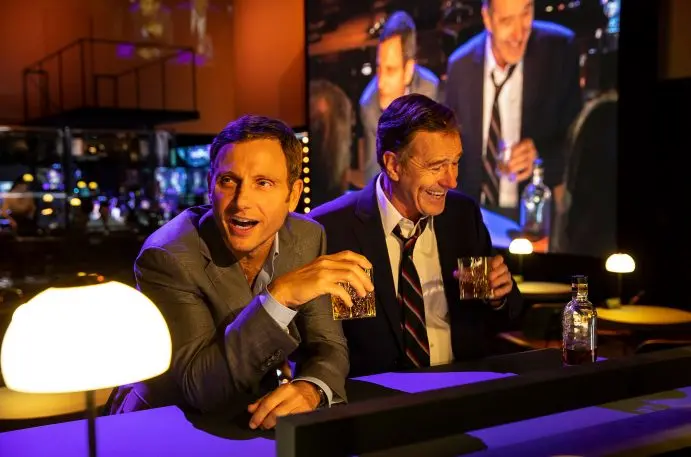
If that was true in 1976, what does that say about Facebook, Google, Apple, and Amazon today?
New network, same dilemma
In an interview a few weeks ago, I asked Network’s co-producer David Binder why he wanted to bring this story to Broadway now, but he didn’t go off on a diatribe about how its themes still resonate. Instead, he cited the thrill of getting to work with Ivo van Hove, the show’s director, and after seeing Network this weekend, I can understand why. It’s a multimedia hybrid that blends live stage and video into a frenetically paced invasion of the senses. The centerpiece of the set is a giant screen, rarely blank, that serves the dual purpose of advancing the story and grounding us in the era. If it’s not showing closeups of the actors in real time, it is flashing montages of test patterns, news footage, and silly TV commercials from the 1970s.
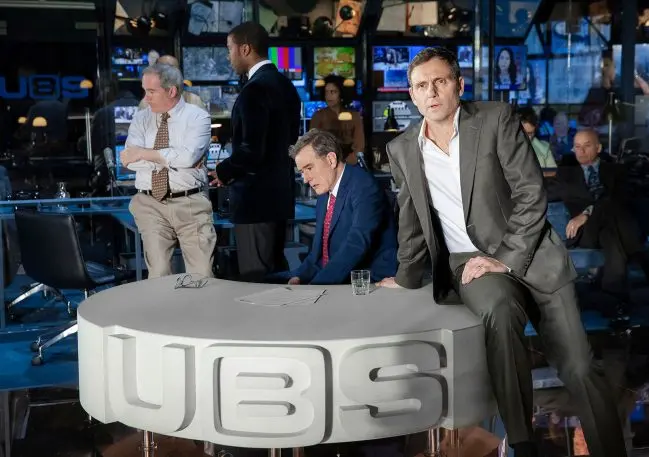
And so now we must pay attention, or we will pay with our attention.
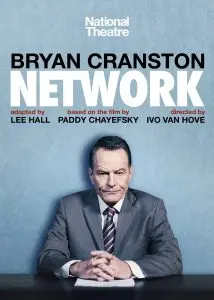
The preciousness of attention is a point that Network makes rather well. The other is that we are all victims, in a way, of the media hardware we grow up with. In 1976, TV had been a staple of American living rooms for just over two decades, and a generation weaned on the tube was just beginning to exert its influence. Network personifies this point in Diana Christensen (Tatiana Maslany), the ambitious young programming executive who first sees Beale’s populist appeal and orchestrates a plan to exploit it for ratings. Diana is “the TV generation,” and to her much older lover, Max (Tony Goldwyn), she is seen as detached, unable to forge real human connections.
If those traits sound familiar, it’s because the same complaints are frequently lobbed at today’s younger millennials and gen-Z—sure, the first generation to grow up with smartphones know how to make an Instagram post go viral, but what about their people skills? Or so the Olds like to wonder.
In the end, Broadway’s Network is dutifully faithful to the source material, with many of Chayefsky’s scenes and monologues kept entirely intact by playwright Lee Hall, who adapted it. Cranston won an Olivier Award for the role of Beale last year when it was staged at London’s National Theatre, and he’s likely to be a contender during Tonys season, turning in a downright Shakespearian performance.
From a theater-geek standpoint, I’d say see Network for that reason alone, but it would also be nice if the show inspired audiences, particularly younger ones, to rediscover this relevant cautionary tale, and maybe even heed its warnings before the promise of the smartphone era spirals down the same tube as television. Hell, it probably already has, but see the show anyway.
Recognize your brand’s excellence by applying to this year’s Brands That Matter Awards before the early-rate deadline, May 3.
